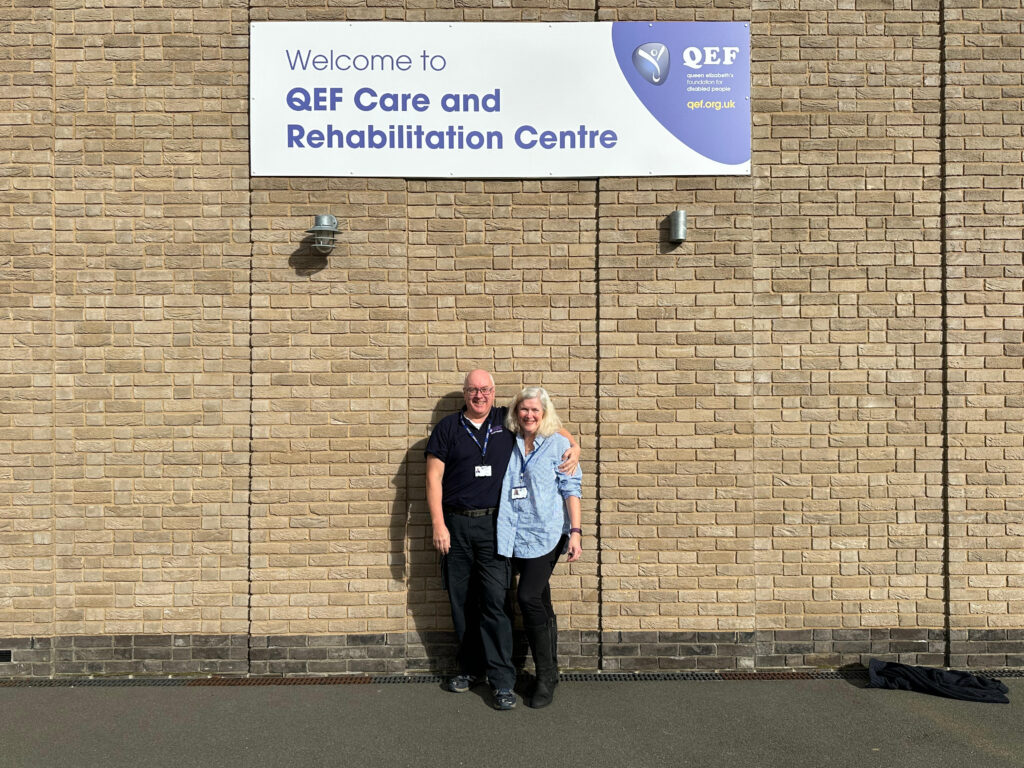Growing up non-disabled and then becoming disabled, I can relate all too well to the difficulty in accepting the need for a wheelchair.
But what so many people don’t realise, is that wheelchairs are helpful not a hindrance. Wheelchairs offer you freedom and independence when the reality might be that without one you cannot move around as easily anymore.
Costs
In the UK, wheelchair options through the NHS are limited and don’t always meet individual needs. There are strict criteria around who is eligible, meaning that a lot of disabled people have to fund their own chairs, through fundraising or charity support. A wheelchair can cost between £3k – £26k+ depending on the chair and how it supports a person.
A wheelchair user may go through many different wheelchairs in their life; as we grow and our bodies and disabilities change, so must our wheelchairs. I started needing a wheelchair at the age of 10 and since then have gone through 5 wheelchairs. 1 self-bought ‘beginner’ wheelchair, 1 NHS powerchair, 2 funded chairs through a voucher scheme and 1 fundraised for powerchair, so as you can imagine, for some, this can be a huge cost for something that is so vital to independence.
 Language and societal portrayal
Language and societal portrayal
The language around wheelchair users in everyday society still needs a lot of work, with people still using phrases like ‘wheelchair bound’, ‘confined to a wheelchair’ or calling wheelchair users ‘the wheelchair’…yes that does still happen. But simply saying ‘wheelchair user’ explains that you are a person, who is using a wheelchair.
There is often an assumption that wheelchair users do not get out of our chairs, but even people who need their wheelchairs on a more permanent basis are not ‘wheelchair bound’ as the stereotypes suggest and others, like myself, are ambulatory wheelchair users. This is incredibly common and we still face a lot of criticism, with images of people getting out of their wheelchairs going viral with the caption ‘it’s a miracle.’ Just like anyone, we are all unique, disability looks different for everyone and wheelchair users look different to how society often portrays them.
As a wheelchair user myself, I often joke among my non-disabled friends who speak about their concerns of growing older and becoming isolated, that I won’t be like that, because from a young age I have grown used to my wheelchair which enables my freedom. So, whilst most of my friends may sit at home, I’ll be the one whizzing past in my chair like nothing has changed. I sometimes feel as though disability at a young age can be a blessing, as it prepares us for so many obstacles that face us as we grow older. This is something society doesn’t recognise yet and I hope that with more awareness raising and better narratives around wheelchairs this will become more positive.
QEF’s partner charity MERU, offer a mini powered wheelchair called Bugzi. This incredible piece of equipment offers young children independent mobility often for the first time, so children under 5 can mix, learn and play with their family and friends without needing to be carried. Bugzi also helps a child prepare for their first NHS wheelchair assessment, by giving them time to learn how to control a powered wheelchair, and so really helps the next stage in their journey as a wheelchair user. Bugzi is available on a free loan scheme and assessments with a paediatric occupational therapist are available at up to 11 partner centres across the UK.
How QEF support wheelchair users
At QEF we are proud to work closely with so many different wheelchair users, whether that’s our employees or people who come through our services such as the Care and Rehabilitation Centre and may be adapting to using a wheelchair for the first time, or QEF Mobility Services looking for their best mobility options, or the children that have their horizons opened by MERU’s Bugzi wheelchairs.
Kate Enver, QEF’s Director of People says: “At QEF we actively support and provide services that underpin the aims of International Wheelchair Day. We want to enable wheelchair users to celebrate the positive impact a wheelchair has in their lives and celebrate the great work of the many millions of people who provide wheelchairs, support and care for wheelchair users and who make the world a better and more accessible place. We are a Disability Confident Employer and support our colleagues who use a wheelchair to be actively included at work, with reasonable adjustments in the workplace.”
In addition to MERU’s Bugzi, QEF’s Mobility Services offer wheelchair assessments carried out by a qualified occupational therapist who will produce a written report to confirm the outcome of the assessment and recommendations. They can also provide mobility scooter assessments, providing an opportunity to use various mobility vehicles to compare the driving styles and assess your individual needs.
 Through our Care and Rehabilitation Centre, we support clients with neurological conditions such as incomplete spinal cord injuries, stroke or acquired brain injuries, all of which can result in clients needing to use a wheelchair for the first time. Clients are supported with physiotherapy, occupational therapy and clinical psychology to rebuild core skills and if necessary to help them adjust to life as a wheelchair user.
Through our Care and Rehabilitation Centre, we support clients with neurological conditions such as incomplete spinal cord injuries, stroke or acquired brain injuries, all of which can result in clients needing to use a wheelchair for the first time. Clients are supported with physiotherapy, occupational therapy and clinical psychology to rebuild core skills and if necessary to help them adjust to life as a wheelchair user.

